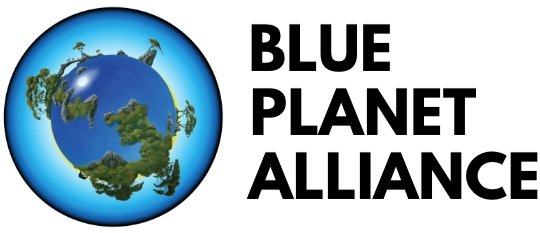Power Surge
By Henk Rogers
Blue Planet Alliance Founder and CEO
Though both are Pacific island paradises, there is a world of difference between Hawaii and Palau.
Hawaii is part of the United States, has a population of almost 1.5 million, and has an estimated GDP of nearly $74 billion.
Palau is an independent republic and a Member State of the UN, has a population of 18,000, and has a GDP of $261 million.
But as islands thousands of miles from continental mainlands, both are dependent on importing resources at exorbitant rates, and that includes fossil fuels. Hawaii was spending $6 billion annually (12.3% of GDP) on importing dirty energy to provide electricity to its residents, while in 2019, Palau spent an astounding 13% of its GDP on fossil-fuel imports.
Those are unsustainable numbers, which not only make these islands dependent on the whims of markets thousands of ocean miles away, but also continue to contribute hugely negative impacts to the planet.
We are currently two years into what many in the sustainability sector are calling the Decade of Action, a sprint to achieve the UN Sustainable Development Goals (SDGs) by 2030. If we don’t achieve these goals, as we’ve been warned by the UN’s IPCC reports, we may face irreversible consequences to our climate, which can lead to great chaos, including upset ecosystems, mass extinction of species, and mass migration in the form of climate refugees. We need to wean ourselves off fossil fuels, and we need to start somewhere.
Where we’re starting is with islands.
Hawaii and Palau are leading the way. Both have enough resources from a combination of solar, wind, wave, biomass, and geothermal energy to power themselves, and both have announced their intentions to do so. Blue Planet Foundation — a nonprofit I started about a decade ago to facilitate this exact scenario in Hawaii — played a key role in helping the 50th State become the first state to legislatively mandate a transition to 100% renewable energy by 2045.
It certainly wasn’t easy. We convened public sector, private sector, and civil society leaders to bring them to the table together and strategize on what would be necessary to achieve this cost- (and planet-) saving strategy. One of the biggest obstacles was the utility in Hawaii, which argued it would lose money in such a transition. But as we persevered, we provided data sets to show how they would actually make more money in a renewable market. Eventually, they saw the light — and now they’re one of our biggest allies.
It was an incredible moment of joy for us when the bill arrived from the State legislature in 2015 and was signed by Governor David Ige. More than a dozen U.S. states and territories have since followed suit, and we knew we had a movement in the making.
That’s when I founded Blue Planet Alliance, another nonprofit that is using the lessons we learned in Hawaii to try and help island nations and territories around the world also make the transition.
We visited Palau in April this year, during the Our Oceans Conference, and met with President Surangel Whipps, Jr. Shortly thereafter, he announced that Palau would transition to 100% renewable energy by 2032.
We also met with Guam this year, which also passed a law mandating a transition to be 100% renewable by 2045. At UNGA this year in September, Tonga held an event at which I was a keynote speaker, and they too announced their intention to go 100% renewable.
And there are other islands with which we have yet to meet that have set similar goals, and which we admire and cheer, like American Samoa. And Iceland has been 100% renewable since 1998.
As each island joins our alliance, not only are they saving billions of dollars, and helping the planet, they are also creating a powerful new political force, a unit of often Small Island Developing States (SIDS), which in the shifting geopolitical sands of the moment could emerge as an important alliance.
And now, as we head to COP27 in Egypt this week, with the possibility of adding other island names to our growing movement (look for word from us next week!), our alliance has the wind at our backs.
Henk Rogers is the founder and chairman of Blue Planet Alliance.



